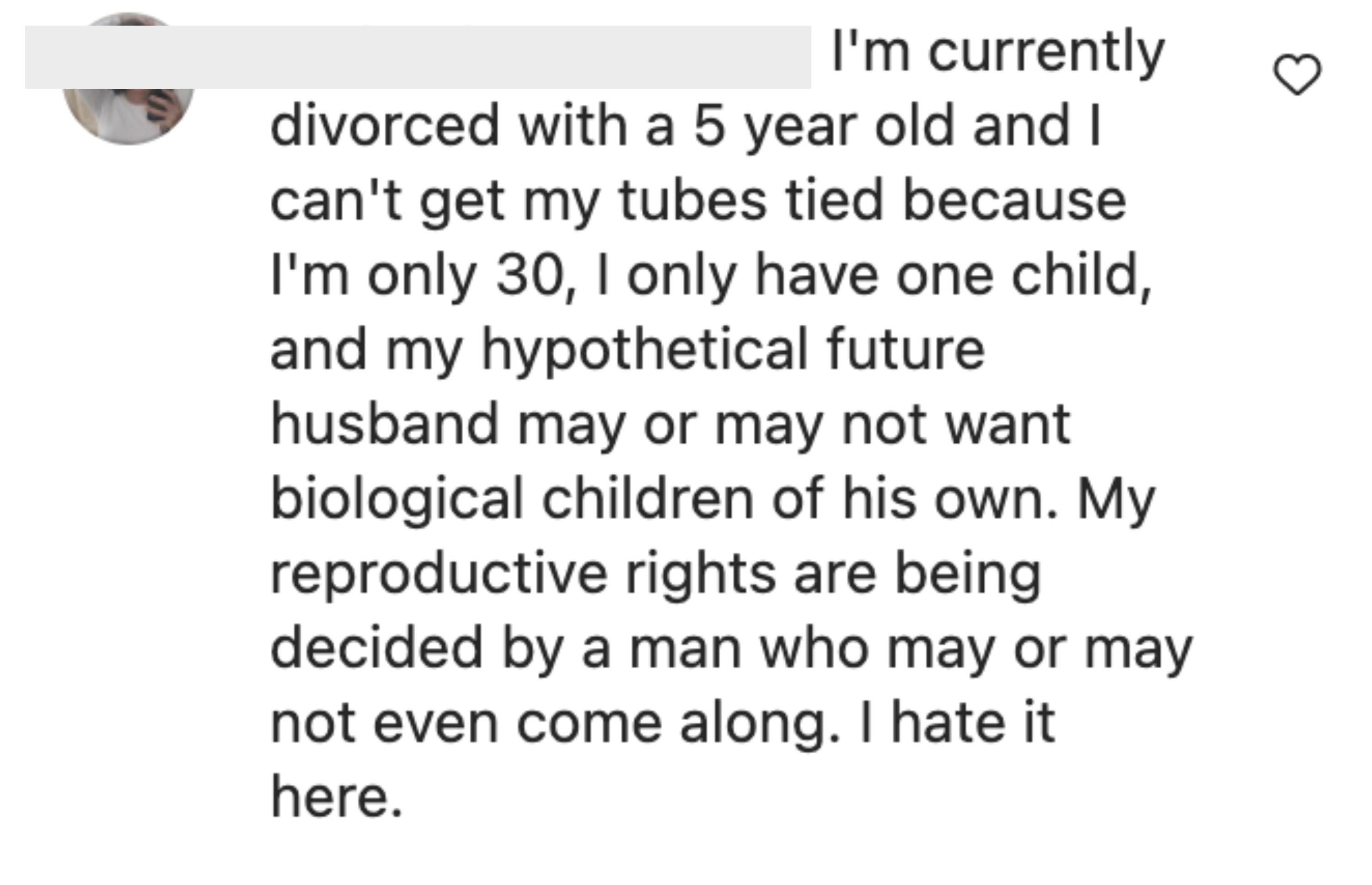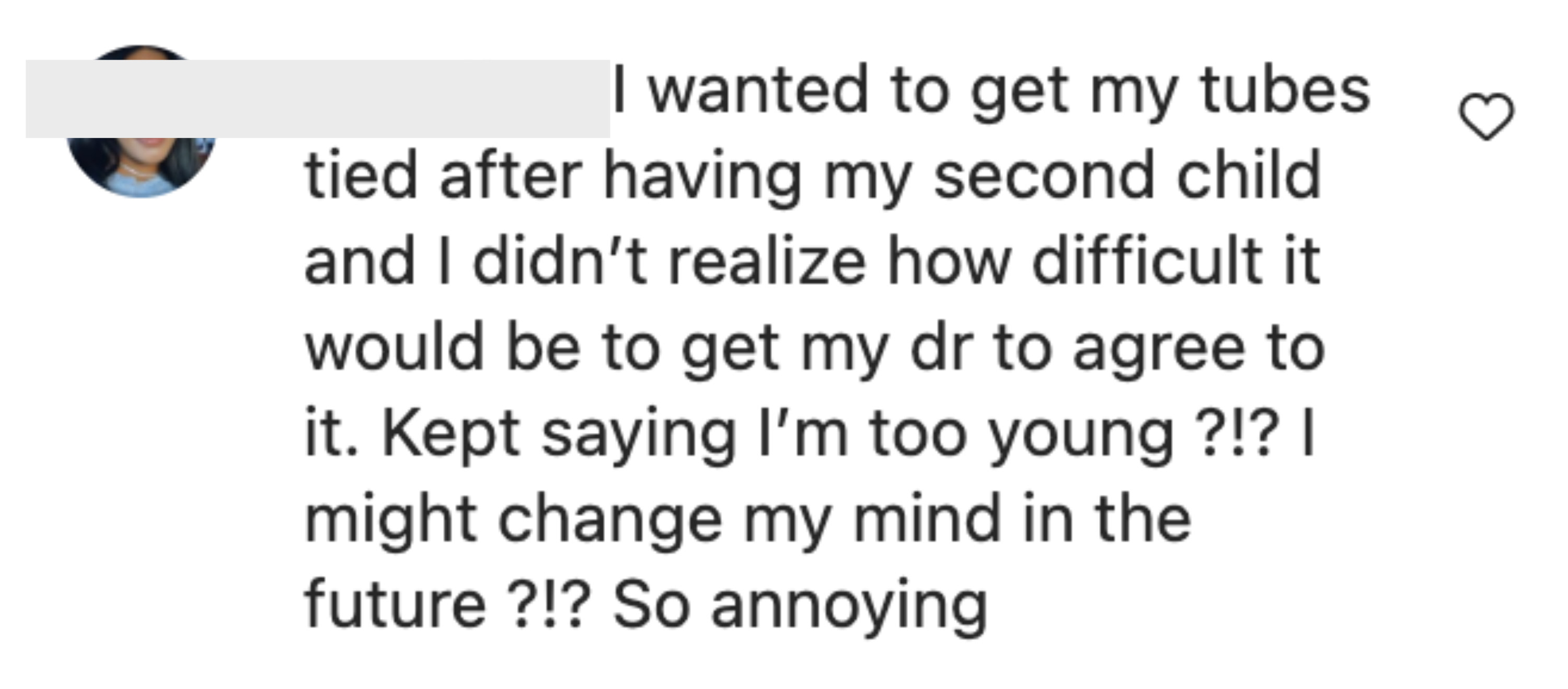Recently, BuzzFeed spoke to Abby Ramsay, a 24-year-old who spent six years searching for a doctor willing to sterilize her, but was met with constant rejection due to reasons ranging from her age and concerns of future regret, to one OBGYN insinuating that those who do not want kids just need therapy.
"My pain and my desires and my goals and my life were all dismissed because of a baby that didn’t even exist. A hypothetical person had more control over my future than I did," Abby said when thinking back on her journey. Then, when she finally found her team of doctors, "I almost burst into tears of joy right then and there."
On Feb. 4, Abby successfully underwent a combination surgery including a bilateral salpingectomy, in which doctors remove both fallopian tubes, thereby withdrawing an egg's pathway from the ovaries to the uterus, as well as an endometrial ablation, which removes a layer of the endometrium — aka the tissue lining a uterus.

After sharing Abby's story, people across the BuzzFeed Community were inspired to share their own experiences and struggles when it came to seeking permanent birth control options, thereby opening a larger conversation about how challenging it can be for people with uteruses to choose child-free lives.
1. For the most part, people shared moments when a doctor rejected or second guessed their wishes without hearing approval from their husband...

2.

3. ...their ex-husband...

4. ...or a hypothetical man that may or may not come into their lives.

5.

6.

7. Second most commonly spotted in our comment section were young women who were medically penalized due to their age:

8.

9.

10.

11. Others faced barriers implemented by requirements written into state law, like pre-tubal ligation counseling, in which both partners may have to be involved in the decision making process and informed about risks and alternative options:

12. Amongst the experiences detailed, there's a common theme of doctors anticipating women regretting their choice, despite the US Collaborative Review of Sterilization conducting a study which showed that only 12.7% of women reported feeling regret within their first 14 years post-surgery...

13. ...regardless of the person's health.

For greater context on the difficulties people may face when seeking permanent birth control, and why other doctors may hesitate to work with their patients, BuzzFeed spoke to Dr. Kiarra King, who has been a practicing OB-GYN for 15 years. She said: "I can’t characterize or speak to another person’s hesitancy. However, generally speaking, I think people may project their personal beliefs onto others, and in the setting of discussing permanent sterilization this may result in hesitancy."
If someone finds themselves in a scenario where a physician may be projecting their own biases, Dr. King explained that patients can advocate for themselves in three key ways:

"When I counsel patients on their contraceptive options, I will review the risks, benefits, and alternatives of each method," Dr. King said. "Patients will often come in with options they have already been considering. My goal is to help the patient find their best option that is without, or limits, medical contraindications, for them."
"With that being said, when it comes to female sterilization, it’s important for patients to know that it does involve a surgical procedure, it is intended to be permanent, and it will prevent them from being able to conceive spontaneously in the future. Most patients who are considering permanent sterilization are aware of these factors."
Writer's note: Women are capable of making informed decisions about their bodies, and should be treated as such. So, seeking permanent birth control options should be as simple as Dr. King described above.

